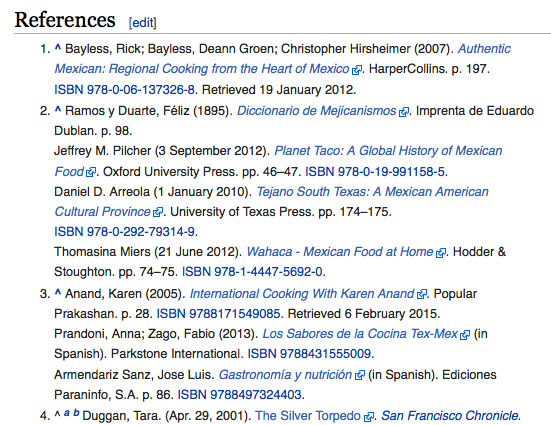Using the Web to Get Stuff Done -
Effective Research with Wikipedia

Using the Web to Get Stuff Done
Effective Research with Wikipedia


/en/using-the-web-to-get-stuff-done/what-is-wikipedia/content/
Wikipedia is one of the most popular resources on the Internet for general knowledge because of its broad scope and ease of use. It works a little differently than other reference tools, and it's helpful to understand how to use it for different goals. It shouldn't be your only source—especially if you're doing academic research—but it can be a great starting point.
Comparative studies have determined that Wikipedia is accurate and easy to read and understand, but it is not always comprehensive or balanced. [citation needed]
Like most encyclopedias, Wikipedia can provide a good overview of your topic's basic definitions and history. Wikipedia articles usually provide a broad outline of the topic, helping you build a foundation of knowledge. This can give you an idea of what specific information you need. In addition, many articles contain a lot of accurate factual information and provide context.
Wikipedia links relevant information. Look for hyperlinks in an article to other Wikipedia pages on related topics. The See also section near the end of the article may also have topics relevant to your research, as well as the What links here page, which you can find on the left sidebar.

Wikipedia is a great place to find more material. Look for references at the end of the article in the References section and the Further reading and resources section.
The References section near the end of the article contains all of the sources that were used to write that Wikipedia article. According to Wikipedia's core content policies, this information should be verifiable and reliable.

The Further reading and resources section contains references that were not used by the editors of Wikipedia to build the content of that particular article but are recommended as topical and reliable sources.

The links in both these sections will take you to sources outside Wikipedia, and parts of the article were based on some of these sources. If you are looking for sources for an academic paper, note that Wikipedia's guidelines for what constitutes a reliable source do not correspond with academic guidelines, so you will need to make that determination yourself.
Wikipedia has tools to help you critically examine what you read. Read the sources cited by the article to see if the information is consistent. Check the history of an article for significant revisions, consider why those revisions were made, and learn about who made the revisions. Check the Talk page for any major conflicts or disagreements about the article. Understand that anything you read may be inaccurate or biased.

You should always check multiple sources when doing thorough research anyway, but it may be that Wikipedia doesn't have much information on your topic or doesn't examine your topic deeply enough. For very specific topics, journals or specialized encyclopedias related to that field may be a better starting point.
Professors will tell you to use multiple sources when writing a paper, and we'll tell you to use multiple sources when learning a new skill. To better understand how Wikipedia works and how to use it, read About Wikipedia, then read Researching with Wikipedia, particularly the Background knowledge for researchers section. Many universities have similar resources, like this guide from Cornell University. If you're a student, understand your university's policies and your professor's guidelines, and read this article on academic use.
Above all, maintain curiosity, a healthy critical skepticism, and an enthusiasm for learning. These qualities are the cornerstones of scholarship and will set you up for a lifetime of learning and improvement.
/en/using-the-web-to-get-stuff-done/how-to-find-recipes-online/content/